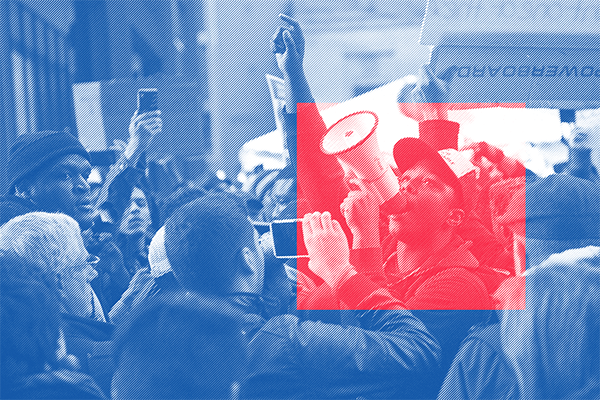Descargue un PDF imprimible de esta guía aquí >>
La Primera Enmienda de la Constitución de los Estados Unidos protege "la libertad de expresión", además de "el derecho del pueblo de reunirse pacíficamente". Eso significa que usted goza del derecho constitucional de manifestarse. En general, la policía del Distrito de Columbia entiende ese derecho. La gran mayoría de las manifestaciones en D.C. transcurre sin problemas, y gran parte de los manifestantes no experimentan contratiempos. De todos modos, vale la pena estar preparado, en especial si planea arriesgarse a un arresto. Esta guía puede ser de ayuda.
Stay Informed
Sign up to be the first to hear about how to take action.
By completing this form, I agree to receive occasional emails per the terms of the ACLU’s privacy statement.
By completing this form, I agree to receive occasional emails per the terms of the ACLU’s privacy statement.


